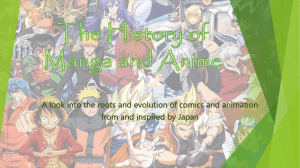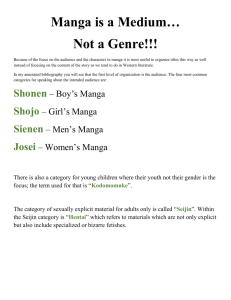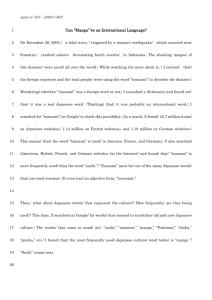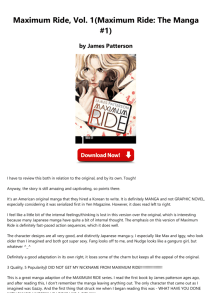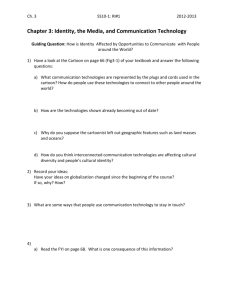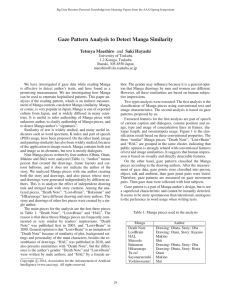Manga, Desire, and Power Lecture 6: March 12, 2003 1
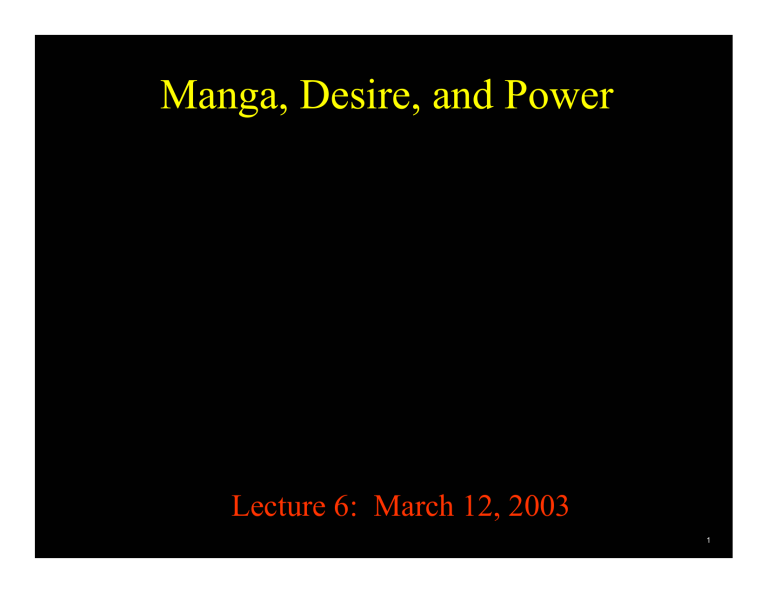
Manga, Desire, and Power
Lecture 6: March 12, 2003
1
Comic Books and Identity
• Questions of power:
– unattainable ideals?
– fantasy as empowerment?
– deeper messages?
2
Sharon Kinsella, Adult Manga
• Pop culture in Japan through manga
(comic books)
• Shift in power in the production of manga
• politics and “how people feel”
(see Adult Manga: Culture & Power in Contemporary
Japanese Society by Sharon Kinsella)
3
Kinsella on “Adult Manga”
• Sharon Kinsella is now prof. of sociology at Yale
• focus on the production side of manga
• interest in “cultural politics”
• note conflicts between editors and artists
“Ghost in the Shell”
See http://www.manga.com/ghos t/ghost.html
4
Kinsella on manga
• manga as “air” (p. 4)
– i.e., everywhere, permeates all sectors of society
• pioneers in early 1950s
• production is unstable and contested (5)
• “low culture” or source of national pride . . . ?
Gainax is a large anime company
See http://www.gainax.co.jp/
5
Manga as a medium
• publishing companies have more freedom than other mass media
• typical readers=men/boys without much money
– big consumers read less manga
• very little advertising
6
Manga as an industry
• not just a cultural object but a business
• Tokyo is where offices are located
• editors are at the center Shonen Jump, a leading manga
See http://www.shonenjump.com/
7
Artist - Editor Tension
• Three main sources
– editors impose work discipline on artists(e.g., “canning” the authors)
– struggle over contents
• “product” sold for profit
• “art” as a form of culture
– social class
• working class protest
• middle-class management
8
Otaku
• Dangerous fanatics?
• Info managers of the future?
Gainax: the company fictionalized in “Otaku
Video”
• Where draw the line between healthy and unhealthy attachments to consumer items . . .?
See http://www.gainax.co.jp/
9
MIT OpenCourseWare http://ocw.mit.edu
21G.
039 / 21G.037 Japanese Popular Culture
Spring 200 3
For information about citing these materials or our Terms of Use, visit: http://ocw.mit.edu/terms .
